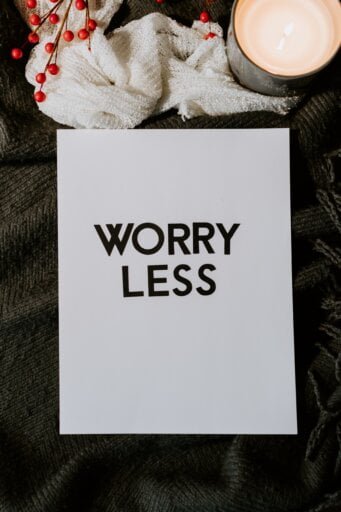Are you experiencing dizziness that seems to come out of nowhere? If so, you might be wondering if anxiety could be the culprit behind this disconcerting symptom. It’s a question worth exploring, as anxiety and dizziness often go hand in hand. In this article “Can Anxiety Cause Dizziness”, we will shed light on the possible connection between anxiety and dizziness, providing you with a clearer understanding of whether anxiety could be causing your bouts of dizziness.
Understanding Anxiety
Definition of anxiety
Anxiety is a normal and common human emotion that is often characterized by feelings of unease, worry, and fear. It is a natural response to stress or a perceived threat and can vary in intensity from mild to severe. While it is normal to experience anxiety in certain situations, such as before an important event or during a challenging situation, when anxiety becomes excessive or persistent, it can interfere with daily life and be classified as an anxiety disorder.
Causes of anxiety
There is no single cause of anxiety, as it can be influenced by a combination of factors. These factors can include genetics, brain chemistry, life experiences, and personality traits. Additionally, certain medical conditions, such as a thyroid disorder or heart disease, can contribute to the development of anxiety. External factors, such as traumatic events or ongoing stress, can also trigger anxiety symptoms.
Symptoms of anxiety
Anxiety can manifest in various physical, emotional, and cognitive symptoms. Physically, an individual experiencing anxiety may feel a racing heart, shortness of breath, muscle tension, or stomach discomfort. Emotionally, anxiety can lead to feelings of restlessness, irritability, or a sense of impending doom. On a cognitive level, anxiety can cause racing thoughts, difficulty concentrating, or obsessive worrying. It is important to note that everyone may experience anxiety differently and that symptoms can vary from person to person.
Understanding Dizziness
Definition of dizziness
Dizziness, also known as vertigo, is a sensation of feeling lightheaded, unsteady, or off-balance. It is often accompanied by a spinning or whirling sensation, as if the world is rotating around you. Dizziness can be temporary and mild, or it can be severe and persistent, significantly impacting one’s daily activities.
Causes of dizziness
Dizziness can have a multitude of causes, ranging from inner ear disturbances to certain medical conditions. The most common causes include inner ear problems, such as benign paroxysmal positional vertigo (BPPV) or Ménière’s disease, as well as low blood pressure, dehydration, and medication side effects. Additionally, dizziness can be a symptom of underlying health issues like anemia, migraines, or cardiovascular disorders.
Types of dizziness
There are various types of dizziness, each with its own specific characteristics. Vertigo is the most common type and is characterized by a spinning sensation. Disequilibrium refers to a general feeling of unsteadiness or imbalance, often described as feeling “off.” Presyncope refers to a sensation of near-fainting or lightheadedness, while lightheadedness itself is a feeling of being about to faint. Identifying the specific type of dizziness can help in determining the underlying cause and appropriate treatment.

Can Anxiety Cause Dizziness
Anxiety-induced dizziness
Anxiety can directly contribute to feelings of dizziness, as it affects the body’s physiological and psychological processes. When experiencing anxiety, the body releases stress hormones, such as adrenaline, which can trigger physical symptoms, including dizziness. Additionally, the intense focus on worrying or anticipating negative outcomes can lead to hyperventilation and altered breathing patterns, further exacerbating dizziness.
Physiological connection
The link between anxiety and dizziness can be attributed to the body’s fight-or-flight response. During times of perceived threat or stress, the body releases stress hormones that prepare it for action. These hormones can increase heart rate, escalate blood pressure, and alter blood flow. These changes can affect the inner ear, which plays a crucial role in maintaining balance, leading to dizziness.
Psychological connection
Anxiety can also have a psychological impact on dizziness. Those with anxiety may exhibit increased sensitivity to bodily sensations, often perceiving them as threatening or dangerous. This heightened bodily awareness, combined with catastrophic thinking and hypervigilance, can create a cycle of fear and anxiety, contributing to the experience of dizziness.
Effects of Anxiety-Induced Dizziness
Impact on daily life
Anxiety-induced dizziness can significantly impact an individual’s daily life. The fear of experiencing dizziness can lead to avoidance of certain activities or environments, such as crowded places or heights, which can limit one’s freedom and enjoyment. This avoidance behavior can contribute to social isolation and decreased participation in important life events, negatively affecting relationships, work productivity, and overall well-being.
Increased anxiety and panic
The experience of dizziness can trigger heightened anxiety and even panic attacks in individuals with anxiety disorders. The fear of losing control or the inability to escape a situation can intensify anxiety symptoms and perpetuate the cycle of dizziness and anxiety. These episodes can be distressing and overwhelming, making it crucial to address both the anxiety and dizziness symptoms.
Reduced quality of life
Living with anxiety-induced dizziness can result in a reduced quality of life. The constant worry about dizziness episodes and the impact on daily functioning can lead to increased stress and emotional distress. This can further exacerbate anxiety symptoms, creating a vicious cycle that affects overall well-being, relationships, and overall enjoyment of life.

Physiological Mechanisms of Anxiety-Induced Dizziness
Fight-or-flight response
Anxiety-induced dizziness can be attributed to the body’s fight-or-flight response. During times of stress or anxiety, the body releases stress hormones that prepare the body for action. These hormones can cause physiological changes that impact blood flow, heart rate, and balance, leading to dizziness or feelings of lightheadedness.
Hyperventilation and altered breathing
Anxiety often leads to hyperventilation or rapid breathing, which can cause an imbalance in carbon dioxide levels in the body. This imbalance can disrupt normal oxygen and carbon dioxide exchange, leading to dizziness and a sensation of lightheadedness.
Blood circulation and oxygen supply
When experiencing anxiety, the body directs blood flow toward vital organs and muscles, potentially diverting it away from the brain and inner ear. This altered blood circulation and reduced oxygen supply to the inner ear can result in dizziness and balance disturbances.
Muscle tension and imbalance
Anxiety can cause muscle tension and imbalance throughout the body, including the neck and shoulders. This muscle tension can affect posture, gait, and head positioning, potentially disrupting the signals sent from the inner ear to the brain, leading to dizziness or feelings of unsteadiness.
Psychological Factors Contributing to Dizziness in Anxiety
Heightened sensitivity to bodily sensations
Individuals with anxiety often have a heightened sensitivity to bodily sensations, including those related to balance and movement. This heightened bodily awareness can lead to increased monitoring and interpretation of normal sensations as threatening or dangerous, contributing to dizziness and feelings of unsteadiness.
Catastrophic thinking and hypervigilance
Catastrophic thinking refers to the tendency to anticipate and expect the worst possible outcome in any given situation. Hypervigilance, on the other hand, is an excessive state of alertness and monitoring for potential threats. Both of these cognitive processes can contribute to anxiety-induced dizziness, as the constant anticipation of dizziness can keep an individual in a heightened state of anxiety and lead to a cycle of dizziness and fear.
Depersonalization and derealization
In some cases, anxiety-induced dizziness can be accompanied by symptoms of depersonalization and derealization. Depersonalization refers to a feeling of detachment from oneself, while derealization is a sense of detachment from the surrounding environment. These dissociative symptoms can intensify anxiety and contribute to feelings of dizziness and disorientation.
Negative impact on cognitive processes
Anxiety can impair cognitive processes, such as attention, concentration, and memory. When experiencing dizziness, individuals may have difficulty focusing on tasks or remembering important information, leading to increased stress and anxiety. This cognitive impairment can further perpetuate the cycle of dizziness and anxiety.

Common Symptoms of Anxiety-Induced Dizziness
Lightheadedness and feeling faint
One of the common symptoms of anxiety-induced dizziness is a sensation of lightheadedness or feeling faint. This can manifest as a feeling of being about to pass out or a general sense of dizziness.
Vertigo and spinning sensations
Vertigo refers to a spinning sensation, as if the environment or oneself is rotating. It is a common symptom of anxiety-induced dizziness and can be accompanied by nausea and a loss of balance.
Unsteadiness and loss of balance
Anxiety-induced dizziness can also present as a feeling of unsteadiness or imbalance. This can make it difficult to maintain a stable posture or walk without feeling wobbly.
Floating and rocking sensations
Some individuals may experience floating or rocking sensations during episodes of anxiety-induced dizziness. These sensations can further contribute to a feeling of disconnection from the environment and intensify anxiety symptoms.
Nausea and vomiting
Anxiety-induced dizziness can be accompanied by nausea and even vomiting. These symptoms can be distressing and can further contribute to an individual’s anxiety and discomfort.
Differentiating Anxiety-Induced Dizziness from Other Causes
Medical conditions and medications
Distinguishing anxiety-induced dizziness from dizziness caused by other medical conditions or medication side effects can be challenging. Certain medical conditions, such as low blood pressure, anemia, or neurological disorders, can also cause dizziness. Additionally, medications, particularly those that affect blood pressure or balance, can contribute to dizziness. It is important to consult a healthcare professional to rule out any underlying medical causes.
Inner ear and vestibular disorders
Inner ear problems, such as benign paroxysmal positional vertigo (BPPV) or Ménière’s disease, are common causes of dizziness. These conditions affect the vestibular system, which is responsible for maintaining balance. Differentiating between anxiety-induced dizziness and inner ear disorders may require a comprehensive evaluation by a healthcare professional experienced in vestibular disorders.
Cardiovascular and neurological conditions
Dizziness can also be a symptom of cardiovascular or neurological conditions. Conditions such as heart disease, stroke, or multiple sclerosis can cause dizziness. It is crucial to consider these possibilities when assessing the cause of dizziness and consult with a healthcare professional for appropriate diagnosis and treatment.
Diagnosing Anxiety-Induced Dizziness
Medical history and symptom assessment
Diagnosing anxiety-induced dizziness typically involves a thorough medical history and symptom assessment. It is important to provide detailed information about the frequency, duration, and characteristics of the dizziness episodes, as well as any associated symptoms. Additionally, a healthcare professional may inquire about any existing anxiety symptoms and any factors that may trigger or worsen the dizziness.
Physical examination and tests
A physical examination may be conducted to evaluate any physical signs or underlying medical conditions that could contribute to dizziness. This may include assessing blood pressure, heart rate, and neurological function. Additional tests, such as blood work or imaging studies, may be ordered if necessary to rule out other potential causes of dizziness.
Psychological evaluation and assessment
Given the psychological nature of anxiety-induced dizziness, a psychological evaluation and assessment may be conducted. This can involve assessing anxiety symptoms, cognitive functioning, and monitoring for any other psychological factors that may contribute to dizziness. Collaboration between healthcare professionals from different specialties, such as neurology and psychiatry, may be necessary to reach an accurate diagnosis.
Treatment Options for Anxiety-Induced Dizziness
Managing anxiety
Addressing and managing anxiety is crucial in treating anxiety-induced dizziness. This can involve various therapeutic techniques, such as relaxation exercises, deep breathing exercises, mindfulness practices, and stress management techniques. Psychotherapy, particularly cognitive-behavioral therapy (CBT), can be beneficial in identifying and challenging negative thought patterns and developing coping strategies for anxiety.
Cognitive-behavioral therapy (CBT)
Cognitive-behavioral therapy (CBT) is a widely recognized and effective treatment for anxiety disorders, including anxiety-induced dizziness. CBT helps individuals identify and modify unhelpful thought patterns and behaviors that contribute to anxiety. It can also equip individuals with skills to manage stress and anxiety, ultimately reducing the impact of anxiety-induced dizziness.
Medication options
In some cases, medication may be prescribed to help manage anxiety and its associated symptoms, including dizziness. This can include medications such as selective serotonin reuptake inhibitors (SSRIs), benzodiazepines, or beta-blockers. It is important to consult with a healthcare professional to determine the most appropriate medication and dosage for individual needs.
Lifestyle changes and self-care
Implementing lifestyle changes and self-care practices can also help manage anxiety-induced dizziness. Prioritizing regular exercise, maintaining a balanced diet, getting enough sleep, and reducing caffeine and alcohol intake can contribute to overall well-being and anxiety reduction. Engaging in relaxation techniques, pursuing hobbies, and seeking social support can also be beneficial in managing anxiety and minimizing the impact of dizziness.
Conclusion Can Anxiety Cause Dizziness
Anxiety-induced dizziness is a complex phenomenon that involves a combination of physiological and psychological factors. It can significantly impact an individual’s daily life and overall well-being. Understanding the relationship between anxiety and dizziness, as well as the various causes, symptoms, and treatment options, is essential in effectively managing and addressing this condition. Seeking professional help and support is crucial in obtaining an accurate diagnosis and developing an individualized treatment plan that addresses both the anxiety and dizziness symptoms. With the right strategies and support, individuals can regain control over their lives and experience improved quality of life.
Frequently Asked Questions:
- What does dizziness from anxiety feel like? Dizziness from anxiety may feel like lightheadedness, unsteadiness, or a spinning sensation. It’s often accompanied by feelings of nervousness or unease.
- How do you stop dizziness from anxiety? To alleviate dizziness from anxiety, practicing deep breathing, engaging in relaxation techniques, and addressing the underlying stressors are beneficial. Seeking professional guidance may provide additional strategies.
- Can anxiety cause dizziness and shallow breathing? Yes, anxiety can lead to dizziness and shallow breathing as part of the body’s stress response. Relaxation exercises and focusing on deep, controlled breaths can help alleviate these symptoms.
- Can anxiety cause vertigo? While anxiety can contribute to feelings of dizziness, true vertigo, a spinning sensation, is typically associated with inner ear or vestibular issues. Consulting a healthcare professional can determine the cause.
- How long can anxiety dizziness last? The duration of anxiety-related dizziness varies. It may be brief during acute anxiety episodes or persist for an extended period if chronic anxiety is present. Addressing the root causes is important for relief.
- Can stress cause dizziness for days? Yes, prolonged stress can lead to persistent dizziness. Managing stress through lifestyle changes, relaxation techniques, and seeking professional support can help alleviate symptoms.
- What are 5 emotional signs of stress? Emotional signs of stress include irritability, anxiety, feeling overwhelmed, difficulty concentrating, and changes in mood or sleep patterns. Recognizing these signs is essential for effective stress management.
- Can low serotonin cause dizziness? Low serotonin levels are associated with mood disturbances, and in some cases, dizziness. Balancing serotonin levels through lifestyle changes, therapy, or medication may help alleviate symptoms.
- Can depression make you dizzy? Yes, depression can contribute to feelings of dizziness. Addressing underlying depression through therapy, medication, and lifestyle changes can help improve overall well-being.
- What is panic anxiety? Panic anxiety is characterized by sudden, intense episodes of fear or panic. Physical symptoms may include rapid heartbeat, shortness of breath, and dizziness. Seeking professional help is crucial for managing panic anxiety.
- How do you know if dizziness is serious? Serious causes of dizziness may include issues with the inner ear, neurological problems, or cardiovascular concerns. If dizziness is severe, persistent, or accompanied by other concerning symptoms, medical evaluation is necessary.
- Can anxiety cause balance problems? Anxiety can contribute to balance issues, especially during moments of heightened stress. Practicing mindfulness, addressing anxiety, and maintaining physical well-being can help improve balance.
- Can vertigo be psychological? While true vertigo is typically associated with physical issues, psychological factors such as stress and anxiety can exacerbate or contribute to feelings of dizziness or imbalance.
- Why do I feel dizzy and want to cry? Feeling dizzy and wanting to cry can be a manifestation of emotional distress. Exploring and addressing the underlying emotional factors through therapy or self-care can be helpful.
- Why can stress make you dizzy? Stress activates the body’s fight-or-flight response, leading to changes in blood flow, heart rate, and breathing. These physiological responses can contribute to feelings of dizziness.
- Can neck stress cause vertigo? Neck tension or stress can contribute to feelings of dizziness, especially if it affects blood flow or muscles around the neck. Proper posture, stretching, and stress management can help alleviate symptoms.
- Why do I feel lightheaded every day? Persistent lightheadedness may have various causes, including dehydration, low blood sugar, or underlying health issues. If lightheadedness persists, medical evaluation is recommended.
- What are symptoms of high stress? Symptoms of high stress include headaches, muscle tension, fatigue, changes in sleep patterns, and digestive issues. Recognizing and addressing these symptoms is crucial for stress management.
- What is brain fog? Brain fog refers to cognitive difficulties such as confusion, forgetfulness, and difficulty concentrating. Stress, anxiety, and other factors can contribute to the sensation of brain fog.
- How do I know if I have anxiety symptoms? Common anxiety symptoms include excessive worry, restlessness, irritability, muscle tension, and difficulty concentrating. If these symptoms interfere with daily life, seeking professional evaluation is advisable.
- What are the red flags for dizziness? Red flags for dizziness include sudden onset, severe intensity, persistent symptoms, and associated neurological or cardiovascular symptoms. These may indicate a more serious underlying cause.
- Why do I feel dizzy but not ill? Feeling dizzy without feeling ill may be related to factors such as dehydration, low blood sugar, or stress. If dizziness is persistent or concerning, seeking medical advice is advisable.
- Should I ignore dizziness? Ignoring persistent or severe dizziness is not recommended, as it could be a symptom of an underlying medical issue. Seeking medical evaluation can help determine the cause and appropriate treatment.
- Why am I suddenly dizzy for no reason? Sudden dizziness without an apparent cause may be related to factors such as inner ear issues, blood pressure changes, or anxiety. If it persists, consulting a healthcare professional is advisable.
- What vitamin deficiency causes lightheadedness? Vitamin deficiencies, particularly B12 deficiency, can contribute to lightheadedness. Maintaining a balanced diet and addressing nutritional deficiencies can help alleviate symptoms.
- What gets rid of dizziness fast? To alleviate dizziness quickly, individuals can try sitting or lying down, hydrating, and practicing slow, controlled breathing. If dizziness persists, seeking medical evaluation is recommended.
Source: Anxiety
